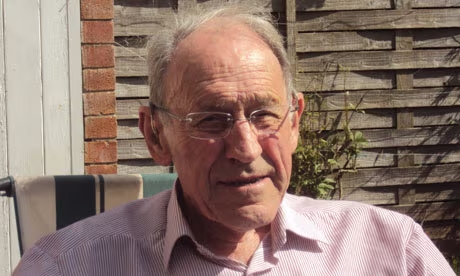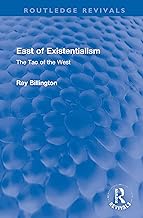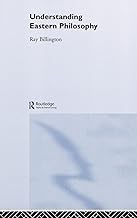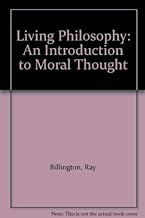Ray Billington: a Philosopher of Life 1930 – 2012
As told by John Clarke
Ray had a painful and very public crisis of faith when he was approaching 40. It had been building up for some years, perhaps as a reaction against his strict Methodist upbringing. His father was a Methodist minister and his mother an active member of the Salvation Army, so it is perhaps not surprising that he became a bit of a rebel. At the age of 20 he refused military service on moral grounds and spent a couple of years working on a farm. And it was no doubt the rebel in him, too, which led him to be an active supporter of CND, and of the Labour party on behalf of which he stood for Parliament.
He went on to train as a Methodist minister, and in his thirties, following various ministry assignments, he teamed up with four other radically-minded clergymen in a joint ministry in Woolwich which was exploring slightly unorthodox ways of presenting and preaching the faith. But this arrangement was fraught with theological disputes and personal differences and ended on a disharmonious note.
This was the 1960s, a period of New Age experimentation with exotic varieties of spirituality and mystical transformation, which was perhaps also a source of his later interest in Eastern religious/philosophical traditions. But there were also influences coming from the Continent, especially existentialist thought. This latter influence came to him from, inter alia, the radical German philosopher/theologian Paul Tillich, especially his book The Courage to Be, a phrase which undoubtedly resonated strongly with Ray. A more personal influence came from John Robinson, Bishop of Woolwich. The latter’s book Honest to God, caused a storm of enthusiasm and protest when it was published in 1963. Ray’s parish was at that time in Woolwich, and the two became good sparring friends. This friendship led to Ray’s own book, an interestingly titled The Christian Outsider, no doubt an echo of Colin Wilson’s book The Outsider which introduced the British public to the philosophy of Jean-Paul Sartre. In his book Ray sought to take the arguments beyond Tillich and Robinson, whom he accused of reluctance to take their arguments to their logical conclusion. His book, The Christian Outsider, proved too much for the Methodist authorities who proceeded to put him on trial and to condemn him for heresy. This brought him brief notoriety in the national press, but deprived him of his chosen career and his family residence in Woolwich. It may also have driven him into alcoholism, a problem about which he was never shy to speak, and which he took steps to deal with.
So, how did Ray manage his life from then on? How did he emerge from this mid-life crisis of faith? He took refuge in philosophy, and took up a lecturing post at the University of the West of England. From his new base in Bristol, and later in Tintern, his aim was, explicitly, to bring philosophy out of the academy into the ‘real’ world. This aim was very vividly illustrated in his tireless efforts, with his partner Hatti, to form and supervise extra-mural philosophy groups, open to all, meeting regularly in pubs, as well as organized weekends of philosophy in various locations both in Britain and abroad. As he once put it: “Philosophy is for the market place, not the ivory tower”. This commitment was encapsulated in the title of his first major book Living Philosophy which captures his belief that philosophy is still alive and well, and is an activity central to life. As a broad introduction to philosophy it has been widely used in university courses.
So where did Ray go intellectually and spiritually? There is no doubt that his dismissal from his ministerial career propelled him into a severe spiritual crisis, perhaps towards total unbelief. But it seems that after his dismissal he made a kind of existential decision to work towards an alternative religious pathway, but one without God. This meant for him, “to be religious is to be profoundly concerned about the human condition and human destiny, about meaning and purpose in life, about the relationship of man to man.” The implication for him was that “I am intensely religious”. But God, in the traditional sense at any rate, was not part of this. In his later writings he dismissed the idea of God completely, arguing that the word meant nothing to him, and that the various traditional arguments for God’s existence were invalid. All of this added up, he insisted, to a rejection of theism in its standard Christian form, or in any form which involved a personal deity. In this respect he made it clear that he was carrying the arguments of Tillich and Robinson a significant stage further.
In this context he often spoke in terms of the need, as he saw it, that we all have to become mature, grown up, and responsible for our own lives, determining our own goals and values in life. God had, for Ray at least, come to stand in the way of his pursuing such ideals, and had become associated in his mind with arbitrary authority, and little more than a convenient projection of anthropomorphic qualities. While he recognized that many had an emotional need for God, he rejected God’s role in life as demeaning to the dignity of human freedom and self-realisation. As he put it “God is a myth by which people could cheerfully live in the past, but by which we can no longer live”. Even the claim that God has an important moral authority was dismissed by Ray on the grounds that it treats God as a kind of policeman or judge, and negative towards human autonomy and responsibility. He took this even further and argued that, as he put it, “God has nothing to do with morals”; these must be our own responsibility to determine.
This approach to life – spirituality without God – did not force Ray into an easy-going atheism or agnosticism. It led him, rather, into two very interesting – and indeed very demanding – directions. The first, as I have already indicated, was towards Existentialism, and in particular the writings of Jean-Paul Sartre whose philosophy can be summed up in Sartre’s statement that ‘Man is what he makes himself to be’, and which speaks of our being thrown without purpose into the world and therefore condemned to make sense of it in terms of our own contriving. As Ray put it with typical vividness, we are delivered into the world without instructions on the package.
This led Ray to outline three major spiritual pathways. The first is love. In elaborating this, this he drew on one of his favourite philosopher/theologians, Martin Buber who has famously drawn attention to the I-thou, in contrast to the I-it, relationship. In a word: love. This relationship, the freely chosen union of self with the other, Ray suggested, opens my self to the other and thereby expands my own being. The second way of spiritual fulfilment is the pursuit of art. What he had in mind, however, was not art-works as such but rather the act of creation itself which at one time, he noted, was a term reserved for God alone, but now – perhaps since the Romantic movement – has a much wider connotation. The third way is opened up to us through our experience of the natural world. As Ray pointed out, human life depends on nature, so it is hardly a luxury or an optional extra in our lives. He often quoted Wordsworth, especially the Tintern Abbey poem – “I have felt a presence that disturbs me with the joy of elevated thoughts, a sense sublime of something far more deeply interfused”. In general Ray pointed to the ways in which the Romantics called forth an especially powerful sense of our spiritual relationship with nature which we might all agree speaks to us strongly today.
In Ray’s view there is a connection between all of these ways of understanding spirituality in non-theistic ways, with Eastern philosophy and religions, especially those traditions rooted in the ancient cultures of India and China. He discussed this topic extensively in his last three books as well as in his lectures, and gave them considerably more attention than is standardly the case within Western academic philosophy circles. Mysticism was a term often used to characterise these traditions and was typically dismissed as beyond the remit of rationally based philosophy. Ray was very happy to transcend this barrier.
Ray spoke and wrote warmly about a number of non-theistic spiritual traditions that arose in Asia. These included the Advaita Vedanta school, and especially Theravada Buddhism which, as he saw them, offered an honest assessment of the human condition in terms of the impermanence and sufferings of life, without any supernatural goal or salvation through a supreme divinity. Chinese Taoism was, however, Ray’s favourite Asian tradition. He noted that Taoism is focussed on the attainment of health and longevity by spiritual means, involving practices of self-development through the cultivation of bodily and mental refinement and our relationship with nature. In its more philosophical form it sought this through simple living, and the cultivation of the flow of nature’s energy (Chi) through the body by means of exercises such as Tai-Chi and Chi-Gung (now well known in the West). Ray was especially moved by the manner in which Taoist principles are expressed through Chinese brush and ink paintings. The method itself (which is essentially the same as that of the written script) is viewed in China, he noted, as a form of spiritual cultivation, especially the ideal of spontaneity.
These and other Eastern traditions were seen by Ray as manifestations, in their various ways, of religion – spirituality – without God, in culturally diverse ways. They are not designed to convert us to a new universal creed, but point towards an overall spiritual convergence, a sense of ontological unity, which transcends the possibility of a purely rational completeness in our understanding of the world. In summing up this approach, he wrote that “Western philosophy is incomplete without its Eastern counterpart”.
In conclusion, I would add that there was indeed something of the Taoist sage about Ray himself – including his well-known sense of humour – the Taoist sage Chuang-tse was famous for it. Along with his rages against God, Mrs Thatcher and social injustice, he was a kind, generous and very tolerant person and thinker. He ended his life in the house he and his partner Hatti shared in the hills that rise beyond the River Wye and Tintern Abbey
Further Reading: Guardian Obituary Sep 2012
For a rare video recording of a short talk by Ray Billington from 1989, click the Website link below.
Events
-
Test Event for Recordings
- November 14, 2022
Bibliography
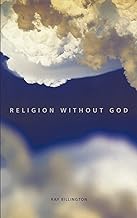
Religion Without God - 2002
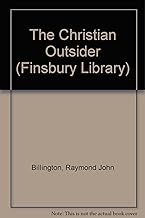
The Christian Outsider - 1971
